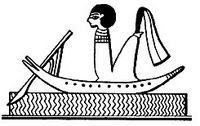Casey Fleming writes
"On Celibacy and Desire" for her blog Take Me with You. She reminisces about reading the poem, "Celibacy at Twenty", twelve years ago when she was this age and recounts a moving conversation with a co-worker whose husband was serving overseas.
Fleming writes, "Celibacy and sexual energy do not have to be mutually exclusive, and I'd go so far as to argue that they rarely are.
Thomas Moore, one of my favorite thinkers, admonishes Christians for a too limited and misguided understanding of celibacy, and describes Jesus Christ as a symbol of the 'sexual celibate', a man who did not have sex, but for whom the body and sensuality were of utmost importance in his interactions, teachings, life, and, clearly, in his death. Many couples intuitively understand his concept of 'sexual celibacy'. They purposefully inject celibacy into their relationships and marriages for certain time periods either to reignite passion and lust, to adhere to a religious principle, or to respectfully address more pressing aspects of their relationship, more pressing needs."
Celibacy at Twentyby Sharon Olds
After I broke up with someone,
or someone with me, days would go by,
nights, weeks, soon it would be months since I had
touched anyone. I would move as little
as possible, the air seemed to press on my skin, my
breasts like something broken open, un-
capped and not covered, the buds floated in the
center at the front, if I turned a corner too
fast I would almost come. Swollen,
walking like someone carrying something
filled to the brim, the lip of the liquid
rocking, taut, at the edge, at the top——
and at times, in the shower, no matter how quickly
I washed I'd be over the top in seconds,
and then the loneliness, which had felt enormous,
would be begin to grow, easily, rapidly,
triple, sextuple, dodecatuple,
the palm fronds and camellia buds bent
double under a campus sky of iron.
Later, when the next first kiss would come,
it would shock me, the size and power of happiness,
and yet it was familiar——lips aching and
pulling, hands and feet going numb, I'd be
trying not to moan, streaming slowly
across the arc of the sky——it was always
a return, the face in the dashlight closer
and closer, like the approaching earth,
until it is all you can see. Each time,
I wanted to be coming home
to stay. But every time I went
from months of hunger to those first kisses,
soon there were the last kisses, and I
felt I stood outside of life, held
back——but no one was holding me, I was
waiting, very near the human,
my violence uncommitted, I was
saving it. Once I stripped and
entered the pit I did not want ever to come up out of it.
Labels: Celibacy, Sex, Thomas Moore


